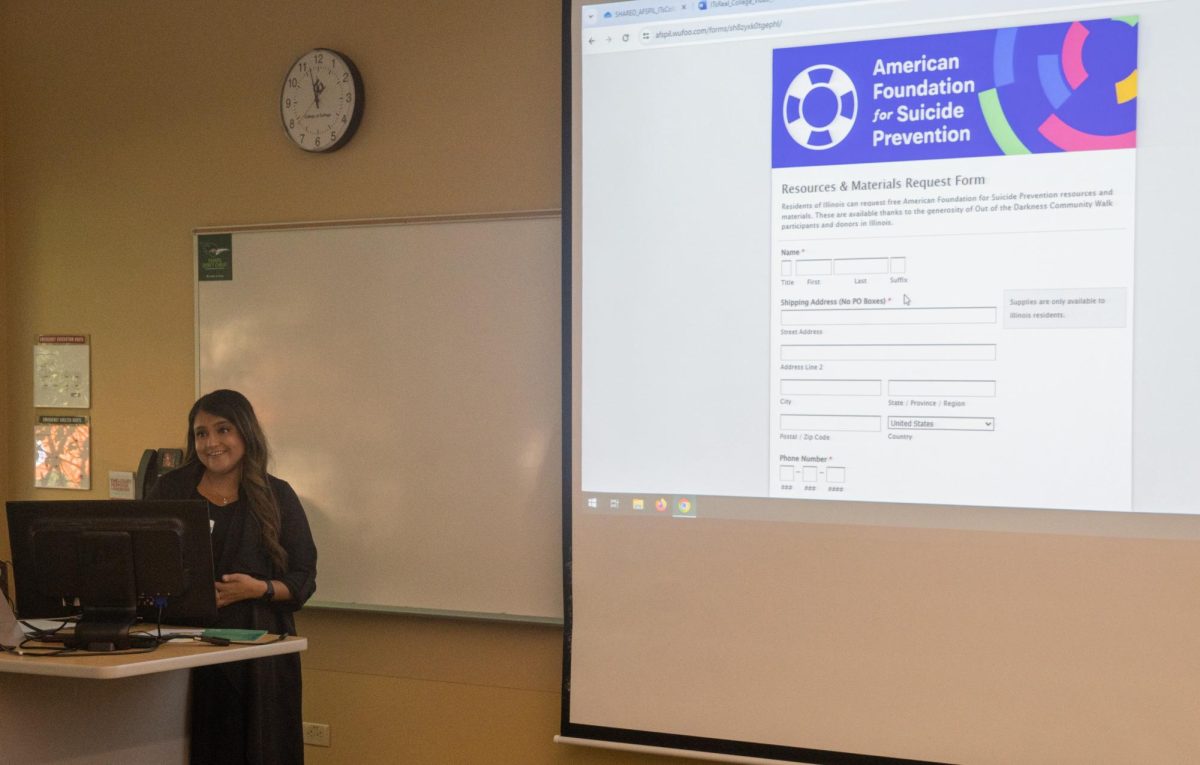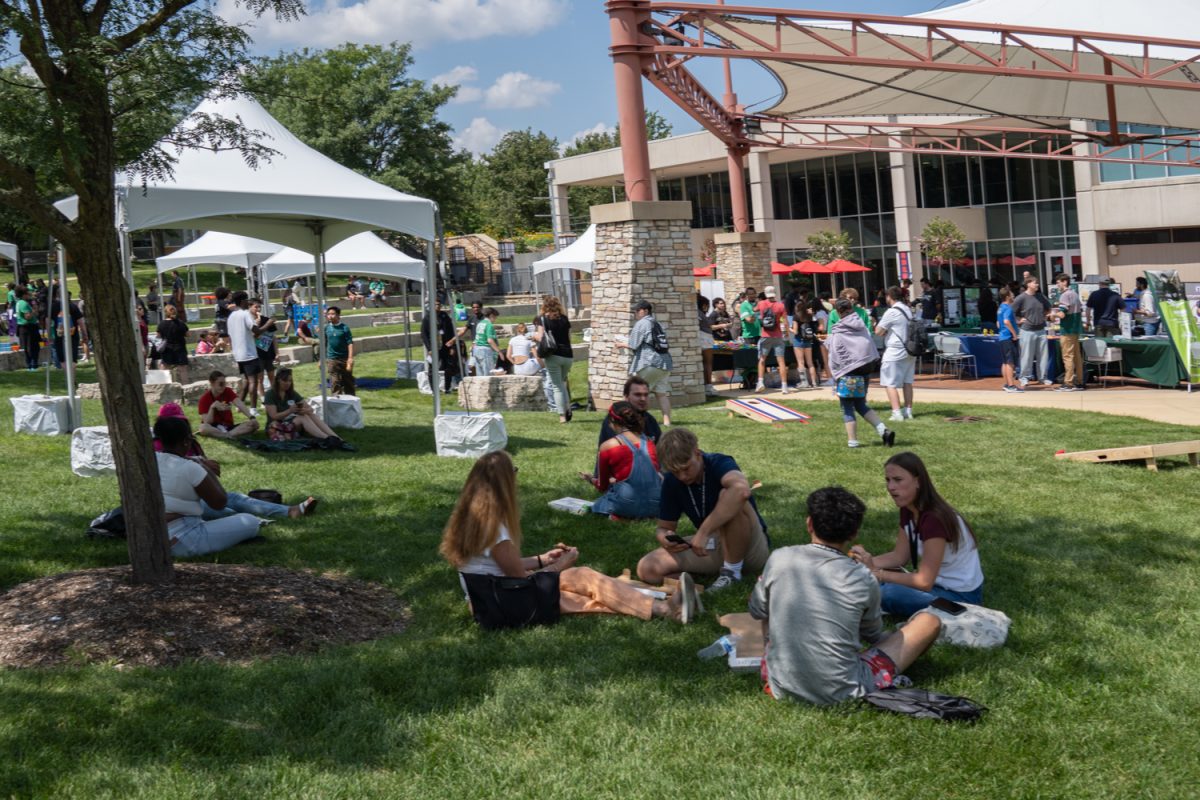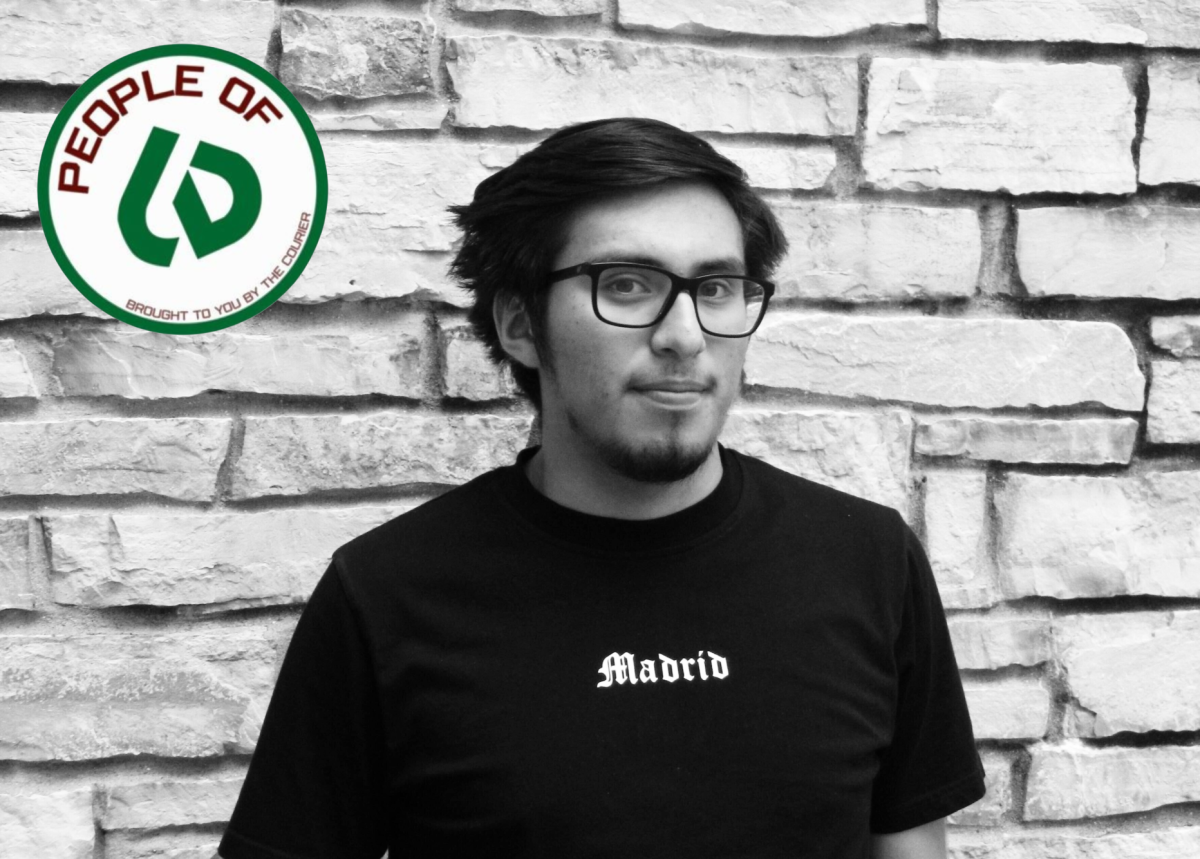Originally a biology student in college, Dr. Dimple Patel, at first, did not initially reflect on mental health let alone expect to dedicate her life and career to mental health awareness. Her current path began with a life-altering car accident when she was 21.
Now a clinical psychologist with a Psy.D, Patel serves as the first South Asian board member of the Illinois chapter for the American Foundation for Suicide Prevention (AFSP).
In collaboration with COD Counseling and Advising, Dr. Patel visited the Berg Instructional Center (BIC) on Sept. 10 to share the experiences that sparked her initial mental health journey. She acknowledged the impact of cultural and generational stigmas regarding mental health and seeking support, stating that she learned to overcome and fight against such stigmas. This inspired her to pursue a career dedicated to mental health.
“I had that car accident and started having panic attacks. I didn’t know what they were. [Mental Health] would never be talked about in my family and the South Asian community.
“I took that first step in breaking that generational cycle by going to therapy in secret. Within a couple weeks I ended up changing my major from biology to psychology. I did everything I could in therapy to really learn about what I was going through.”
Patel noted that the transition from high school to college can be difficult for many students and may commonly contribute to related mental health struggles.
“College is so different from high school,” she said. “I’ve had to give [high school] seniors or kids I’ve worked with the reality kind of talk, like, ‘Hey, there’s no hand-holding in college. You have to be independent. You have to learn all these different things.’ And I did struggle my first year at college at DePaul. We talked about going to be an engineer, going into accounting or like these high successful fields and that pressure [to pursue those successful fields]. I struggled throughout school, but it was never looked at. It was always dismissed. And you just keep going. And what I know now, I wish I knew back then. Being away from home, you’re on your own, and you’ve got to do all these different things. It is a big adjustment.”
Tandra Rutledge, a program recruiter in Nursing and Health Sciences who serves as an American Foundation for Suicide Prevention volunteer, emphasized the importance of fostering community and camaraderie among people. She also encouraged others to not be afraid of being vulnerable and open up about their mental health struggles.
“A lot of the work around suicide prevention has really focused on individuals,” she said. “As long as we continue to focus on the individual problem, we’ll continue to lose people.
“We have to think about what things we do as a COD community,” she said. “How do we meet the multiple needs of our students and our faculty? You can say, ‘Call this number,’ and they’re not going to do it. How do we create communities where people feel one of the protective factors for suicide prevention is a sense of connection? If that’s not there, people aren’t going to reach out. We need to deal with the emotions and the stigma behind it and get through that. Talk therapy is just one aspect of that. But looking at it from a whole wellness [standpoint], if we don’t have the resources at COD, how do we partner in the community to bring those resources into our community?”
Aneri Christian, a pharmacy student at College of DuPage, agreed. She believes COD should work to cultivate a positive, welcoming atmosphere for all students.
“[We should] promote awareness and make COD feel very welcoming for other students,” she said. “People can spread mental health awareness by educating themselves and others because it will provide a better understanding of what mental health is. I think if people are comfortable with sharing their personal stories, that might help with creating a safe space for others to reach out if they need help.”
Patel stressed the importance of speaking out as peers and friends when a loved one shows signs of distress.
“I’ve had teenagers actually ask me, ‘Hey, I’m worried about my friend or notice my friend [going through a difficult time], what should I do? I’m worried about them, but I don’t want them to be mad at me. They don’t want their parents to find out,’” she said. “. I’ve worked with them on how to approach their friends, ask them, and guide them to this important stuff.”
The American Foundation for Suicide Prevention has a webpage entitled “When someone is at risk.” It provides recommendations for how to approach a person who may be enduring severe mental health struggles.
Patel recommended the Psychology Today website for finding suitable counselors catered to individual needs, as well as resources on ASFP’s website catered toward marginalized communities.
Christian pointed out how students sometimes feel uncertain or uncomfortable about reaching out for mental health support, as well as how the public is not often informed on available mental health resources.
“I feel like some people are just uncertain or just cautious,” she said. “They don’t know what to expect from those counselors. I’ve been at COD for three years. When I first started, I didn’t know anything about counselors actually being here.”
Patel also shared how her difficult experience with losing her mother to suicide in 2011, and the stigma she witnessed after the fact, inspired her to become an advocate in addressing misconceptions surrounding mental health.
“I didn’t talk about it for years,” she said. “I think it’s very societal. [People ask] ‘What happened? How did it happen?’ I was struggling with how people talked about it. I wanted to take control back of that narrative and finally share my side and perspective and speak up for my mom but also for myself. (The year) 2015 is when I actually wrote it out.”
Rutledge expressed hope that COD’s collaboration with the American Foundation for Suicide Prevention will foster more mental health advocacy and awareness among students, faculty and staff in the near future.
The American Foundation for Suicide Prevention hosts several fundraisers and volunteer opportunities open to the public for registration to aid in spreading mental health awareness, including “Out of the Darkness Community Walks.” Dates for upcoming events can be found on their website, supporting.afsp.org.









